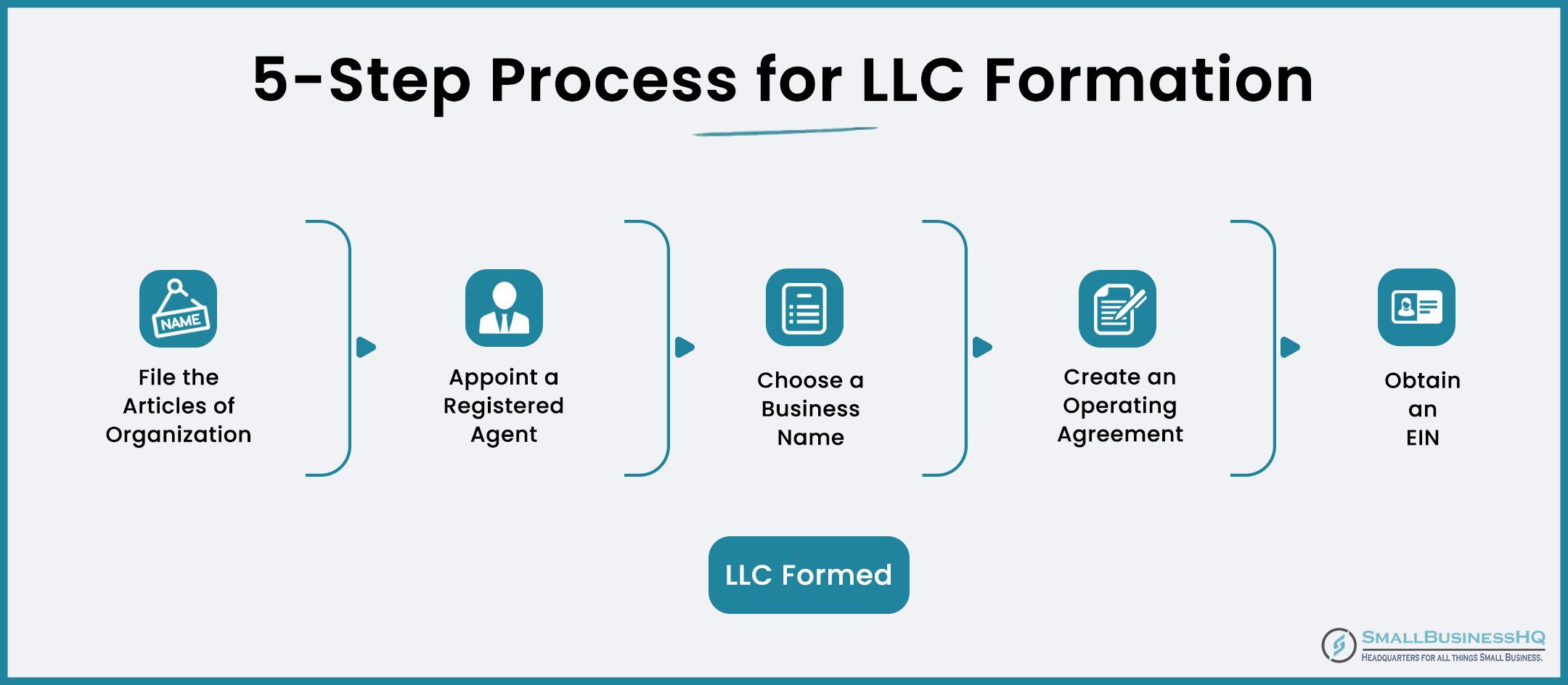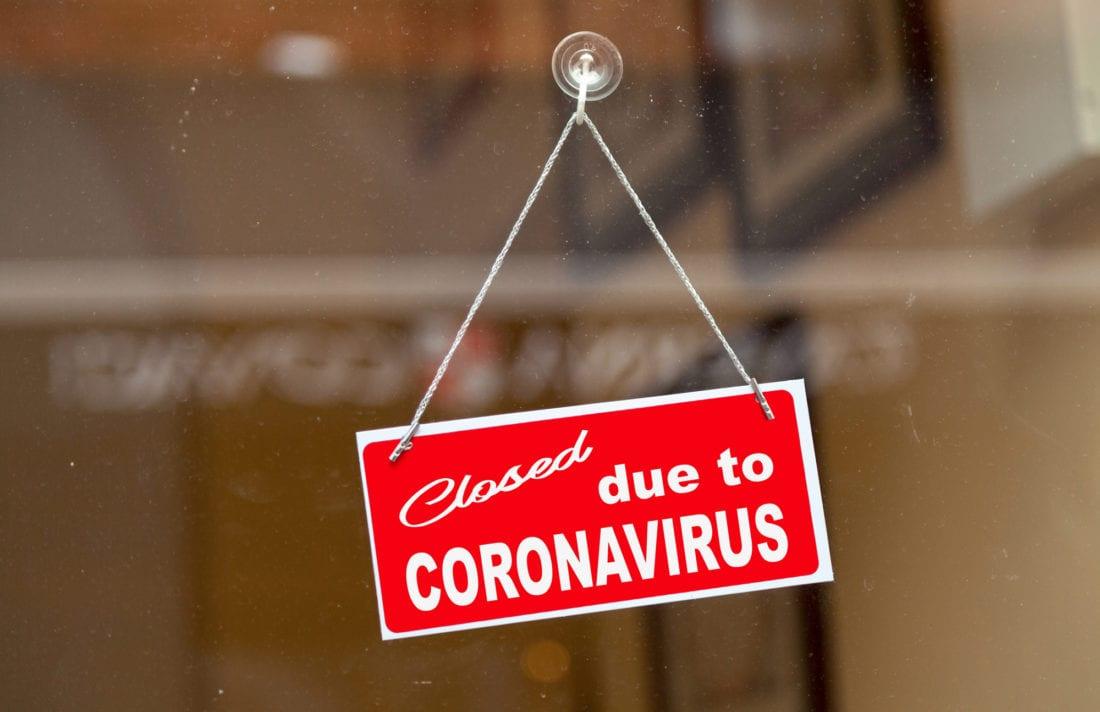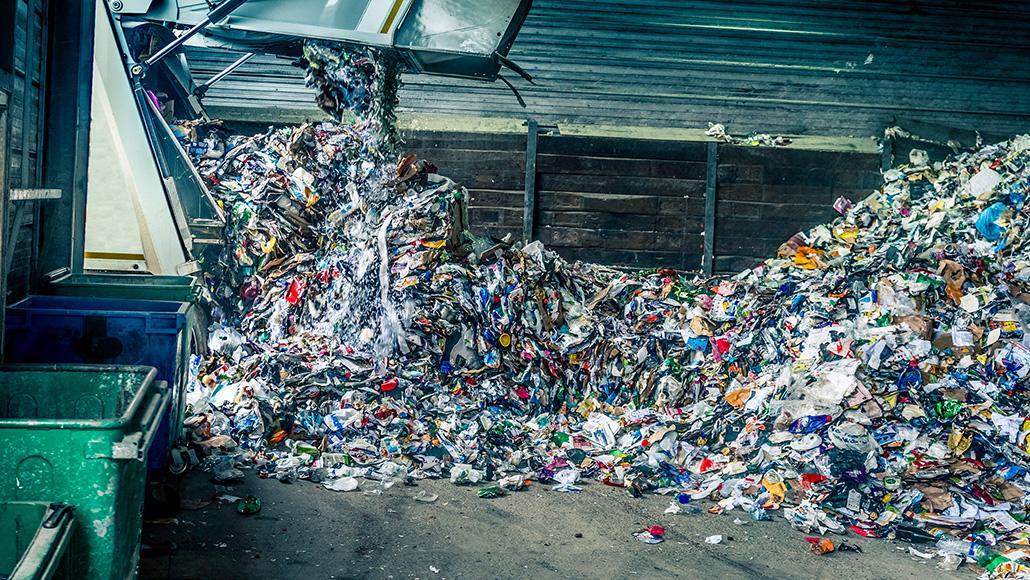
Are you looking to make a positive impact on the environment while also building a successful business? If so, starting a recycling business might just be the perfect venture for you! With the growing awareness of environmental issues and the increasing demand for sustainable practices, now is an ideal time to dive into the world of recycling. In this article, we’ll walk you through five simple steps to launch your very own recycling business in [current_year]. Whether you’re passionate about reducing waste or simply want to tap into a thriving market, our full guide will equip you with the knowledge and tools you need to turn your eco-friendly dreams into reality. So, grab a cup of coffee, and let’s get started on this exciting journey toward sustainability and profitability!
Understanding the Recycling Landscape in Current Year
As we navigate through the current year, the recycling landscape continues to evolve, presenting both challenges and opportunities for budding entrepreneurs. The global push towards sustainability has heightened awareness around waste management, making recycling a crucial aspect of environmental responsibility. However, launching a recycling business entails understanding the dynamics of this sector, including policies, market demands, and innovative practices.
One significant aspect of the recycling landscape is the increased emphasis on circular economy principles. This approach encourages businesses to rethink traditional linear models of production and consumption. Instead of merely disposing of resources, companies are now focusing on recycling materials to create new products. Embracing this philosophy not only aligns with consumer expectations but also opens up pathways for businesses to innovate and grow.
Furthermore, government regulations play a vital role in shaping the recycling industry. Many local and national governments are implementing stricter policies aimed at reducing landfill waste and increasing recycling rates. Understanding these regulations is essential for anyone considering starting a recycling business. Staying informed about changes in legislation can give entrepreneurs a competitive edge and help ensure compliance.
Another trend influencing the recycling landscape is technological advancement. The integration of smart technologies in recycling processes, such as AI and IoT, is streamlining operations and improving efficiency. For instance, smart bins that monitor capacity and sort materials can revolutionize the way recyclables are collected. Entrepreneurs who leverage technology can enhance their services and lower operational costs, making them more attractive in a competitive market.
Opportunities also abound in niche markets within the recycling sector. From electronic waste recycling to upcycling vintage materials, there are various avenues to explore. Identifying a specific niche allows for targeted marketing and helps in establishing a brand identity. For example, businesses that specialize in recycling certain materials like plastics, metals, or even clothing can create loyal customer bases by offering tailored services.
As you consider entering this field, it’s essential to assess the market demand for recycling services in your area. Conducting thorough market research will help you identify gaps in service offerings. Engaging with local communities can also provide insights into what residents need and how they prioritize recycling, which is invaluable for shaping your business model.
Lastly, networking with other professionals in the recycling industry can provide guidance and support. Attending industry conferences, joining trade associations, or even participating in local community efforts can provide valuable connections and insights. Engaging with other entrepreneurs can also inspire innovative ideas and best practices that can elevate your business.
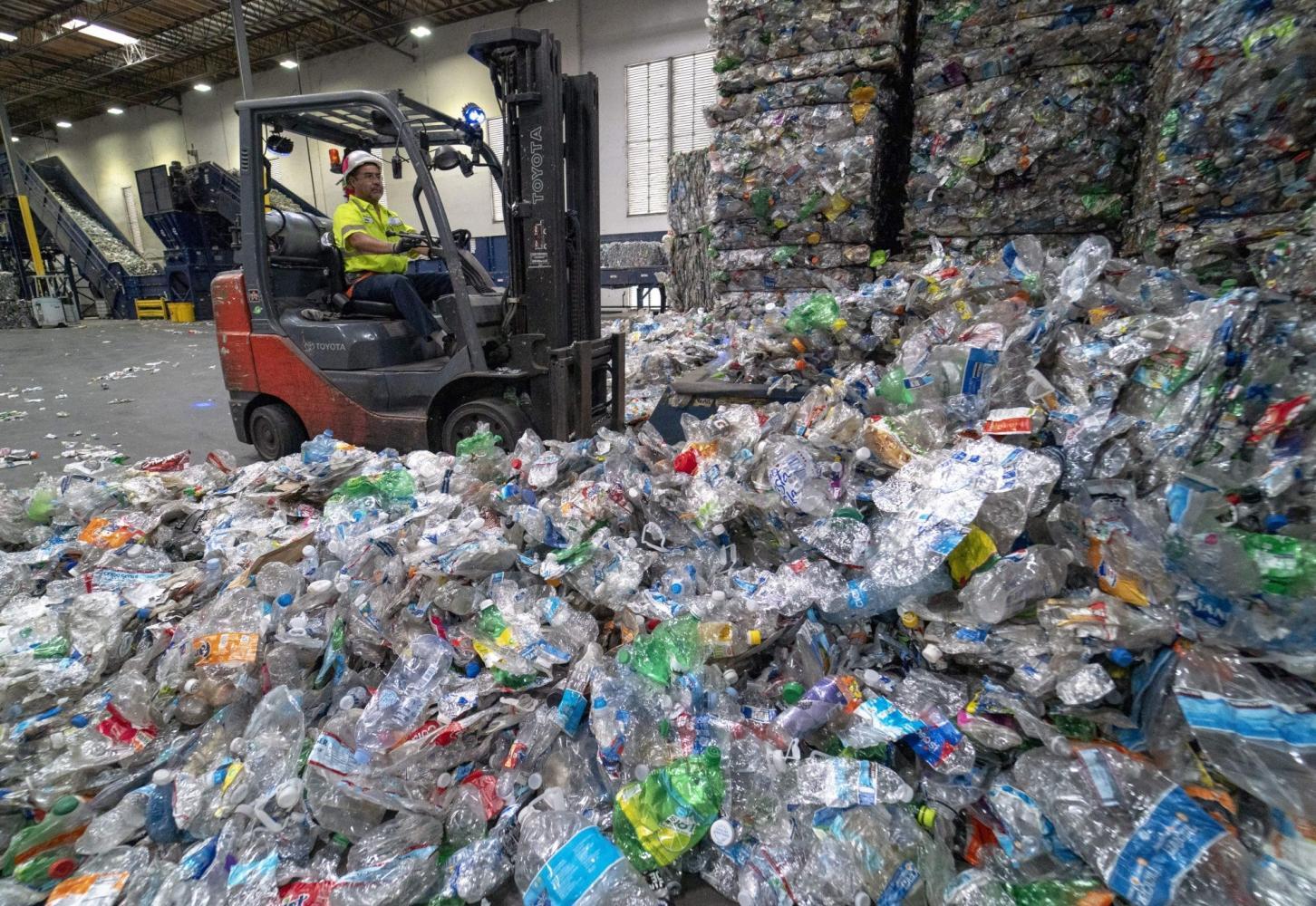
Identifying Your Niche: What Materials Should You Focus On
Identifying a niche is crucial when starting a recycling business. With numerous materials available for recycling, focusing on specific categories can help streamline your operations and maximize profits. Here’s a breakdown of popular materials you might consider:
- Plastics: With the world generating millions of tons of plastic waste each year, specialized recycling of plastics—especially those with high resale value like PET and HDPE—can be quite lucrative.
- Metals: Aluminum and copper recycling have always been reliable options. These materials not only fetch high prices but are also in constant demand due to their widespread use in manufacturing.
- Paper and Cardboard: As digital solutions become more common, the need for recycled paper products remains strong. Targeting businesses that generate large amounts of paper waste can create a steady supply for your operation.
- Electronics: E-waste recycling is a growing field. With the rapid turnover of technology, old devices often contain valuable metals and materials that can be reclaimed.
- Textiles: The fashion industry contributes massively to waste. Recycling old clothes into new fabric or reselling them can tap into a burgeoning market for sustainable fashion.
To determine which materials to focus on, consider conducting a market analysis. Look at local recycling needs and regulations, as well as current trends in sustainability. Engaging with local businesses can provide insight into what materials are readily available for recycling.
Additionally, you might want to evaluate the logistics of handling different materials. For example, some materials may require specialized processing equipment, while others might need specific storage conditions. Understanding these requirements will help ensure that your operations run smoothly.
Another factor to consider is the availability of suppliers. Building relationships with local businesses, schools, and community centers can create a steady stream of materials. Establishing a reliable source of input will significantly impact your business’s stability and growth.
| Material | Potential Revenue | Market Demand |
|---|---|---|
| Plastics | High | Constant |
| Metals | Very High | High |
| Paper | Moderate | Steady |
| Electronics | High | Growing |
| Textiles | Moderate | Increasing |
Ultimately, choosing your niche is about aligning your passions with market demands. By focusing on specific materials that not only interest you but also present viable business opportunities, you can create a recycling business that is both sustainable and profitable.
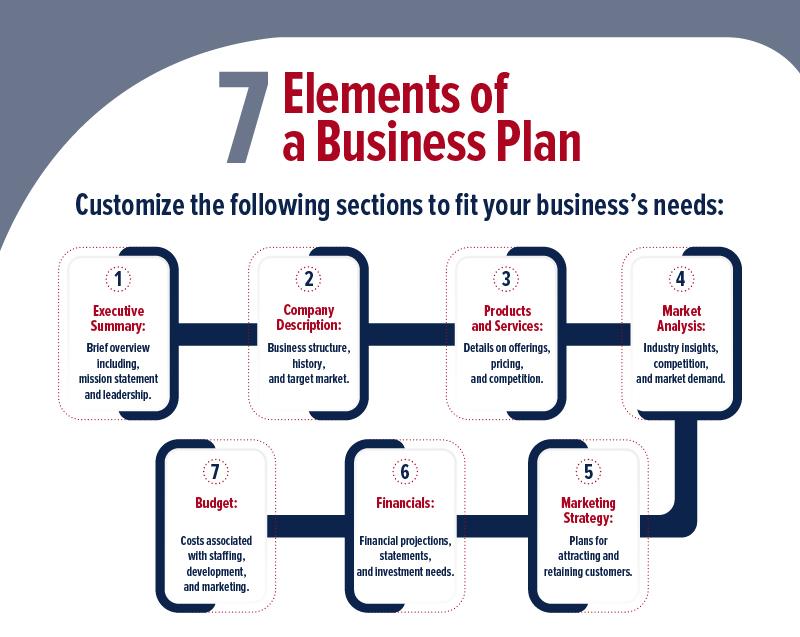
Crafting a Business Plan That Sets You Up for Success
Creating a compelling business plan is an essential step for anyone aspiring to start a recycling business. A well-structured plan not only helps to clarify your goals but also serves as a roadmap for navigating the complexities of the industry. Here are some key components to consider when crafting your business plan:
- Executive Summary: This should encapsulate your business’s mission, vision, and values. It’s your elevator pitch, so make it engaging!
- Market Analysis: Research your local recycling market. Identify who your competitors are and what gaps your business can fill.
- Operations Plan: Outline the logistics of how your recycling business will run. This includes collection methods, processing techniques, and partnerships with local facilities.
- Financial Projections: Present realistic financial forecasts. Include startup costs, projected revenues, and break-even analysis to attract potential investors.
Incorporating a SWOT analysis (Strengths, Weaknesses, Opportunities, Threats) into your business plan can provide insightful perspectives on your position in the market. Understanding these elements can help you leverage your strengths and mitigate potential risks.
| SWOT Element | Description |
|---|---|
| Strengths | Unique services, strong community ties |
| Weaknesses | Limited initial funding, inexperienced staff |
| Opportunities | Growing public interest in sustainability |
| Threats | Regulatory changes, strong competitors |
Don’t forget to establish your marketing strategy. Highlight how you will attract customers and educate the community about the importance of recycling. Utilize social media, local events, and partnerships with schools or businesses to expand your outreach.
a solid exit strategy is essential even at the startup phase. Whether you plan to sell your business, seek investment, or hand it down to family, clarifying your long-term objectives will guide your business decisions from the start.
Navigating Legal Requirements and Permits for Your Recycling Venture
Starting a recycling business may be the eco-friendly venture of your dreams, but before you dive in, it’s essential to understand the legal landscape that governs this industry. Navigating the requirements can be overwhelming, yet it’s crucial for ensuring your business operates smoothly and complies with local laws.
First and foremost, you’ll need to determine the permits required in your area. These can vary widely depending on your location, the type of materials you intend to recycle, and the scale of your operation. Here are some common permits and licenses you may need:
- Business License: Almost all businesses require a general business license to operate legally.
- Environmental Permits: Depending on your recycling methods, you may need specific environmental permits to ensure compliance with local regulations.
- Health and Safety Permits: If your operation involves hazardous materials, you will need to adhere to strict health and safety regulations.
- Transport Permits: If you plan to collect recyclable materials, having the right transport permits is crucial.
To get started, it’s advisable to research your local regulations. This can usually be done through your city or county’s official website. Look for sections dedicated to business development and environmental services, which can provide insights into what’s required.
Another practical step is to consult with a local attorney or a business advisor who specializes in environmental law. They can offer tailored advice based on your specific business model and location. This investment of time and resources can save you from potential legal headaches down the line.
Once you’ve gathered information about the necessary permits, create a checklist to ensure you don’t overlook anything. Here’s a simple example:
| Permit Type | Status | Application Deadline |
|---|---|---|
| Business License | Pending | MM/DD/YYYY |
| Environmental Permit | Not Started | MM/DD/YYYY |
| Health and Safety Permit | Completed | MM/DD/YYYY |
| Transport Permit | Pending | MM/DD/YYYY |
keep in mind that the legal landscape is always evolving. Stay informed about any changes in recycling regulations that could affect your business. Joining local recycling associations or online forums can provide valuable insights and keep you updated on best practices.
By taking the time to understand and comply with legal requirements, you’ll not only protect your business but also contribute positively to the environment. Making your recycling venture a legal success is just as important as the eco-friendly mission behind it.
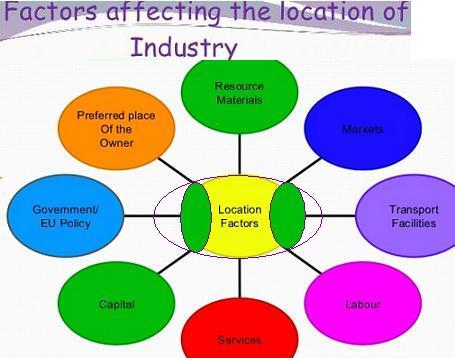
Finding the Right Location: Factors to Consider for Your Business
Choosing the right location for your recycling business is a crucial step that can significantly impact your operations and profitability. A well-thought-out site can enhance your visibility, streamline logistics, and attract more customers. Here are some key factors to keep in mind when selecting your business’s location:
- Proximity to Suppliers: Being close to your suppliers can reduce transportation costs and improve turnaround times. Consider areas with high concentrations of recyclable materials, such as industrial zones or residential neighborhoods with active recycling programs.
- Access to Customers: Evaluate the demographics of potential locations. Your target market might include local businesses, governmental entities, and residential areas that require recycling services. A location that is easily accessible will encourage higher customer engagement.
- Transportation Infrastructure: Look for locations with good transport links. Proximity to major highways, railroads, or shipping ports can ease the logistics of collecting and distributing recyclable materials, ensuring that operations run smoothly.
- Local Regulations: Research the zoning laws and environmental regulations in your chosen area. Some locations may have restrictions on recycling operations or require special permits. It’s crucial to ensure compliance to avoid fines or operational shutdowns.
- Competitor Analysis: Take note of existing recycling businesses in the area. If the market is saturated, you may want to consider locations with less competition or areas that lack adequate recycling services.
- Community Support: Engage with the local community to gauge their attitude toward recycling initiatives. A supportive community can lead to partnerships, customer loyalty, and successful promotional campaigns.
To help visualize potential locations, you may want to create a comparison table to weigh the pros and cons of each option:
| Location | Pros | Cons |
|---|---|---|
| Location A | High foot traffic, close to suppliers | Higher rental costs |
| Location B | Affordable rent, supportive community | Distance from major transportation routes |
| Location C | Near major highways, less competition | Limited access to residential clients |
Ultimately, the right location can serve as a catalyst for your recycling business’s success. By carefully evaluating these factors and taking a strategic approach, you can position yourself for growth and sustainability in the recycling industry.
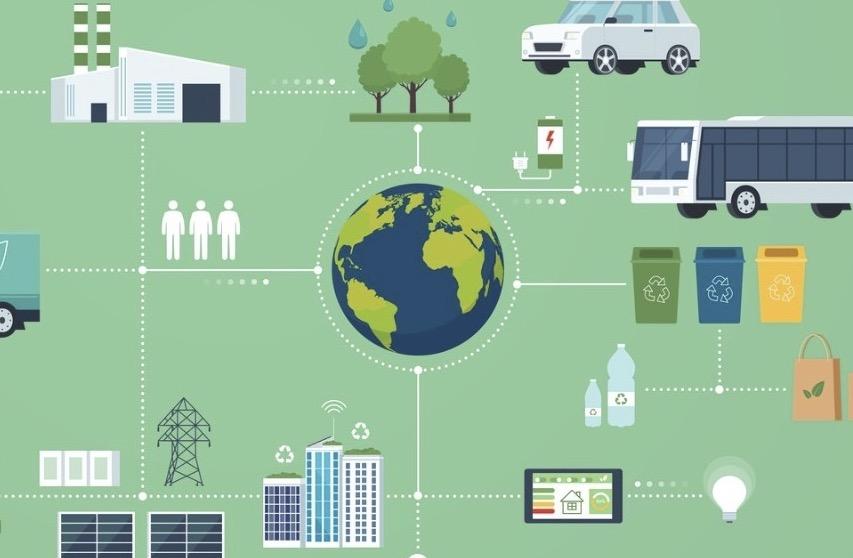
Building a Sustainable Supply Chain and Partnerships
Creating a sustainable supply chain is essential for a recycling business to thrive. By partnering with local communities, businesses, and organizations, you can enhance your operations and make a significant environmental impact. Here are some strategies to consider:
- Identify Local Partners: Connect with local waste management companies, environmental organizations, and recycling facilities. These partnerships can provide access to valuable resources and knowledge.
- Engage with Community Initiatives: Participate in local sustainability programs or workshops. This not only raises awareness about your business but also fosters goodwill within the community.
- Build Relationships with Suppliers: Source materials from suppliers who prioritize sustainability. Establishing long-term relationships can lead to better pricing and consistent quality.
In addition to forming partnerships, it’s crucial to incorporate sustainable practices into every aspect of your supply chain. Consider the following approaches:
- Optimize Logistics: Reduce your carbon footprint by optimizing transportation routes and using eco-friendly vehicles whenever possible.
- Implement Waste Reduction Practices: Aim to minimize waste at every stage of your operation. This includes reusing materials and recycling byproducts.
- Use Renewable Energy Sources: Invest in renewable energy to power your operations, such as solar or wind energy. This not only lowers operating costs but also enhances your brand’s eco-friendly image.
Establishing a transparent supply chain is equally important. Being open about your sourcing, processes, and partnerships builds trust with your customers and stakeholders. Consider creating a table to showcase your sustainability efforts:
| Initiative | Description | Impact |
|---|---|---|
| Community Workshops | Educating locals on recycling processes and benefits. | Increased community participation in recycling. |
| Green Supplier Program | Collaborating with suppliers that follow sustainable practices. | Reduced environmental impact of sourced materials. |
| Eco-friendly Packaging | Using biodegradable or recyclable materials for packaging. | Less waste in landfills and enhanced brand image. |
measure and communicate your success. Regularly track your sustainability metrics and percentage of recycled materials processed. Share these achievements with your partners and customers through social media and your website. This not only demonstrates your commitment but also encourages others to join your mission for a more sustainable future.
Marketing Your Recycling Business to Attract Customers
When it comes to attracting customers to your recycling business, a well-thought-out marketing strategy is essential. Here are some effective approaches you can leverage to ensure your services reach the target audience.
- Leverage Social Media: Platforms like Facebook, Instagram, and Twitter are excellent for showcasing your recycling efforts. Share engaging content such as before-and-after transformations, tips on recycling at home, and success stories to connect with your audience.
- Community Engagement: Participate in local events or host workshops to educate the community about recycling. This not only positions you as an expert but also helps build trust and credibility in your brand.
- Referral Programs: Encourage your existing customers to refer friends and family by offering incentives. A small discount or a free service can motivate loyal customers to spread the word about your recycling initiatives.
- SEO Optimization: Invest time in optimizing your website for search engines. Use relevant keywords related to recycling services, and ensure your content answers common questions. This will help potential customers find you easily online.
- Collaborate with Local Businesses: Form partnerships with local businesses that share a similar customer base. You can cross-promote services, share resources, and even host joint events to expand your reach.
Additionally, consider creating engaging visual content. Infographics detailing the recycling process or videos demonstrating how to recycle correctly can be both educational and shareable. Visuals often catch the eye more than text, making them a powerful tool for your marketing arsenal.
Don’t underestimate the power of customer testimonials. Positive reviews not only enhance your credibility but also influence potential customers’ decisions. Encourage satisfied clients to leave feedback on your website or social media profiles. Highlight these testimonials prominently to attract new business.
Lastly, consider running targeted ads online. Platforms like Google Ads and Facebook Ads allow you to reach a specific demographic interested in recycling and sustainability. Tailor your ads to highlight the unique services you offer, whether it’s curbside pickup, e-waste recycling, or composting solutions.
| Marketing Strategy | Description | Benefits |
|---|---|---|
| Social Media | Engage customers through platforms and share informative content. | Wider reach and enhanced brand awareness. |
| Community Engagement | Host workshops and participate in local events. | Builds trust and positions your brand as an expert. |
| SEO Optimization | Improve your website’s visibility on search engines. | Increased website traffic and customer inquiries. |
| Referral Programs | Incentivize existing customers to refer new clients. | Cost-effective customer acquisition. |

Leveraging Technology to Streamline Your Operations
In today’s fast-paced world, leveraging technology can significantly enhance the efficiency of your recycling operations. By integrating innovative tools and systems, you can minimize waste, optimize resource management, and improve the overall effectiveness of your business. Here’s how you can get started:
- Adopt Management Software: Implementing recycling management software can help you track materials, manage inventory, and streamline processes. Look for solutions that offer real-time data and analytics, enabling you to make informed decisions quickly.
- Use Mobile Applications: Equip your team with mobile apps that allow them to report collection data instantly. This not only improves communication but also ensures that you have up-to-date information regarding your operations.
- Utilize Automated Sorting Technology: Invest in automated sorting systems that use AI and robotics to separate recyclables from waste effectively. This can drastically increase your processing speed and accuracy, reducing labor costs and improving efficiency.
- Track Performance with IoT: The Internet of Things (IoT) can transform your recycling business by providing real-time monitoring of equipment and processes. Sensors can alert you to maintenance needs, reducing downtime and enhancing productivity.
Incorporating technology also means enhancing your customer engagement. Consider developing a user-friendly website and integrating features that allow customers to:
- Schedule Pickups: Use an online booking system that allows customers to easily arrange for pickups, making your services more accessible.
- Track Recyclables: Implement a system where customers can track the journey of their recyclables, providing transparency and building trust.
- Access Educational Resources: Offer information about recycling practices and benefits through your platform, encouraging community participation.
| Technology | Benefit |
|---|---|
| Management Software | Streamlined operations and better data insights |
| Mobile Applications | Enhanced team communication and reporting |
| Automated Sorting | Increased processing speed and accuracy |
| IoT Monitoring | Real-time equipment performance tracking |
don’t overlook the power of social media and digital marketing. Use technology to create awareness and promote your recycling services. Engage with your audience through:
- Informative Posts: Share tips and facts about recycling to educate your community.
- Success Stories: Highlight case studies of how your services have positively impacted the environment.
- Promotions: Use targeted ads to reach potential customers, offering incentives for their recycling efforts.
Incorporating these technologies into your operations isn’t just about keeping up with trends; it’s about setting your recycling business apart in an increasingly competitive market. Embrace these tools to not only streamline your processes but also to foster a culture of sustainability and community engagement.
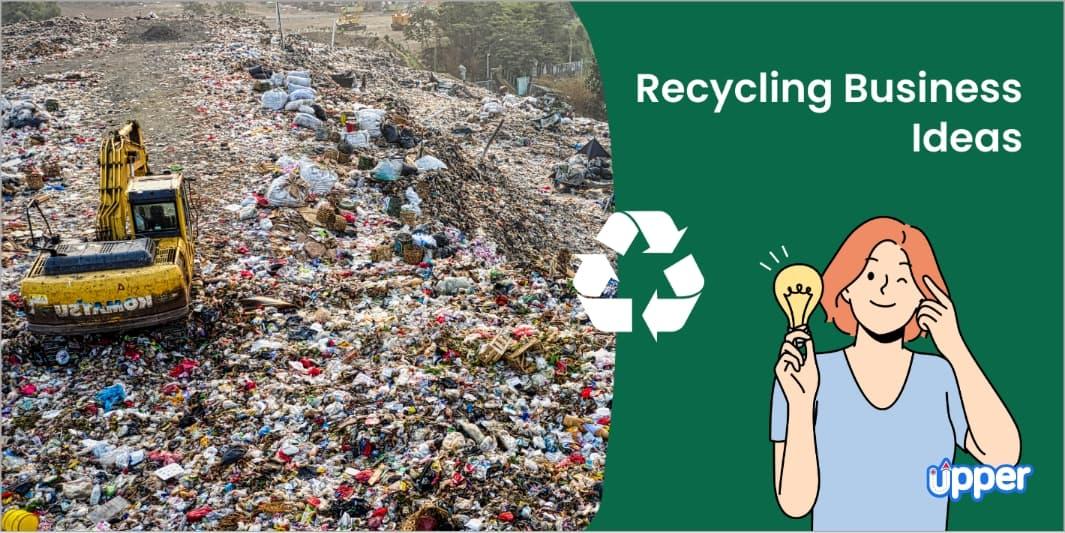
Funding Your Recycling Business: Exploring Financial Options
Starting a recycling business can be an exciting venture, but securing the necessary funds can often feel like a daunting task. Fortunately, a variety of financial options are available to help you get your business off the ground. Understanding these options is crucial for turning your recycling dream into a reality.
First and foremost, consider self-funding your business. This means using your personal savings or assets to finance your startup. Here are a few advantages of self-funding:
- You maintain complete control over your business.
- There are no debt obligations or equity dilution.
- It can be quicker to access funds, allowing for a faster startup.
If self-funding isn’t feasible, turning to family and friends is another viable option. While this may feel uncomfortable, it can be a more supportive environment for borrowing. Just ensure that you have clear agreements in place to avoid potential misunderstandings. Consider drafting a simple agreement that outlines the terms of repayment, as this helps maintain healthy relationships.
Small Business Loans are a popular choice for many new entrepreneurs looking to secure capital. Banks and credit unions offer various loan options tailored for small businesses. Before you approach a lender, you should prepare the following:
- A solid business plan that outlines your vision and financial projections.
- Personal and business credit histories to assess your eligibility.
- Collateral that can back the loan, which may include equipment or real estate.
Another avenue worth exploring is grants for recycling initiatives. Numerous local, state, and federal programs exist to support environmentally friendly projects. These grants typically do not require repayment, making them an attractive option. Keep an eye on deadlines and application requirements to increase your chances of securing these funds. Here’s a simple table to summarize some potential grant sources:
| Grant Source | Eligibility | Amount |
|---|---|---|
| Environmental Protection Agency (EPA) | Non-profits, businesses | Varies |
| State Recycling Grants | Local governments, businesses | Up to $50,000 |
| Private Environmental Foundations | Non-profits | Varies |
Don’t overlook the potential of crowdfunding as a means to raise capital. Platforms like Kickstarter and GoFundMe allow you to present your recycling business idea to a larger audience. By offering attractive rewards or incentives for backers, you can stir interest and financial support while also creating a community around your project.
Lastly, consider forming strategic partnerships with other businesses. Collaborating with organizations that have similar sustainability goals can provide not only financial backing but also valuable resources and networks. A partnership can take various forms, such as joint ventures or sponsorships, enabling you to share costs and expand your reach.
By exploring these diverse funding avenues, you can lay a strong financial foundation for your recycling business. Each option has its pros and cons, so take the time to assess what works best for your unique situation. With the right financial support, you’ll be well on your way to making a positive impact on both the environment and your community.

Creating a Community Engagement Strategy for Longevity
Creating a successful recycling business goes beyond just collecting materials; it requires building a strong community engagement strategy that fosters support and participation. An engaged community not only boosts your business’s visibility but also enhances its sustainability. Here are essential components to consider:
- Identify Your Audience: Understand who your community members are. Are they eco-conscious individuals, local businesses, or schools? Tailoring your message to resonate with various groups will increase engagement.
- Educate and Inform: Provide valuable information about recycling benefits, the process, and impact. Use workshops, social media, and local events to raise awareness and educate your community. Consider creating flyers or infographics that simplify complex recycling concepts.
- Encourage Participation: Launch initiatives that invite community involvement, such as recycling drives, contests, or volunteer opportunities. These activities create a sense of ownership and commitment among participants.
- Foster Partnerships: Collaborate with local organizations, schools, and businesses. Partnerships amplify your reach and effectiveness. For example, working with schools can introduce recycling programs to younger audiences, instilling habits early on.
Incorporating feedback mechanisms can also enhance community engagement. Here’s how:
- Surveys and Polls: Regularly survey community members to understand their needs and perceptions regarding recycling. This feedback can guide your strategy and improve your services.
- Community Meetings: Host open forums where community members can voice concerns, share ideas, and discuss recycling challenges. This not only fosters transparency but also builds trust.
Additionally, utilizing social media platforms for engagement can significantly broaden your reach. Consider the following strategies:
- Share Success Stories: Highlight local recycling success stories and the impact your business has made. Real-life examples inspire others to get involved.
- Interactive Content: Create polls, quizzes, or challenges that encourage participation. This makes learning about recycling fun and engaging.
To track the effectiveness of your engagement strategy, consider using a simple metrics table:
| Metric | Target | Current Status |
|---|---|---|
| Community Members Engaged | 500 | 300 |
| Recycling Drives Held | 12 | 8 |
| Social Media Followers | 1,000 | 750 |
By continuously refining your community engagement strategy, you not only enhance your recycling business’s longevity but also contribute to a more sustainable future. Investing time and effort into community relationships will yield long-term benefits, creating a loyal customer base that believes in your mission.
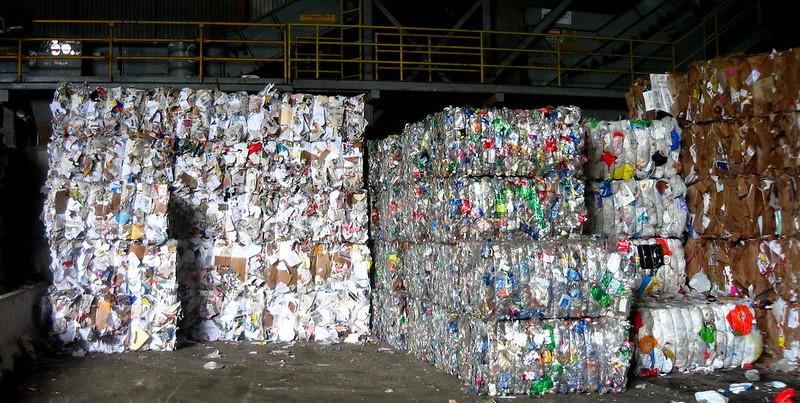
Tracking Your Impact: Measuring Success in Recycling
Measuring the success of your recycling business goes beyond just counting the number of materials you collect. It’s essential to track various metrics that can help you understand your impact on the environment and your financial success. This can significantly improve your operations and marketing strategies. Here’s how you can effectively track your impact.
Set Clear Objectives
Before diving into measurement, determine what success looks like for your business. Are you focusing on the volume of materials recycled, the reduction of waste, or the number of customers engaged? Establish SMART goals (Specific, Measurable, Achievable, Relevant, Time-bound) to guide you:
- Increase the volume of recyclables collected by 20% in the next six months.
- Reduce operational costs by 15% by improving efficiency.
- Engage with local schools and communities to raise awareness about recycling by hosting at least 5 workshops annually.
Use Data Tracking Tools
Investing in data tracking tools can streamline your operations and improve accuracy in performance measurement. Consider using software that allows you to:
- Monitor the types and quantities of materials collected.
- Track customer engagement and feedback.
- Analyze operational efficiency and waste management practices.
Monitor Financial Indicators
Keep an eye on your financial health to ensure sustainability. Regularly review your profit margins, operational costs, and revenue generated from recycled materials. Here’s a simple table to help you visualize your financial performance:
| Month | Revenue ($) | Expenses ($) | Net Profit ($) |
|---|---|---|---|
| January | 5,000 | 3,000 | 2,000 |
| February | 6,000 | 3,500 | 2,500 |
| March | 4,800 | 3,200 | 1,600 |
Engage with Your Community
Your impact extends beyond the numbers; it’s essential to connect with your community. Conduct surveys or feedback sessions to gauge public perception and awareness of your recycling efforts. This feedback can help you adjust your strategies while also fostering community relationships.
Evaluate Environmental Impact
Lastly, measure the environmental impact of your business. Track metrics such as:
- The amount of CO2 emissions reduced through recycling efforts.
- Volume of materials diverted from landfills.
- Increased community awareness and participation in recycling programs.
Consider partnering with environmental organizations to validate your findings and gain credibility.

Adapting and Growing Your Business in a Changing Market
In today’s rapidly evolving market, businesses must remain agile and responsive to changing consumer preferences and environmental standards. For entrepreneurs venturing into the recycling industry, adapting to these changes can set you apart from the competition. Here are key strategies to ensure your recycling business thrives in a dynamic landscape:
- Stay Informed: Regularly research market trends and consumer behavior. Understanding what materials are in demand can help you tailor your services effectively.
- Leverage Technology: Incorporate innovative recycling technologies such as automated sorting systems or mobile apps that facilitate collection and tracking. This can streamline operations and enhance customer experience.
- Create Partnerships: Build relationships with local businesses, municipalities, and non-profits. Collaborations can open up new revenue streams and broaden your customer base.
- Embrace Sustainability: Highlight your commitment to eco-friendliness. Consumers are increasingly loyal to businesses that prioritize sustainability, so showcasing your environmental impact can be a major selling point.
Additionally, consider diversifying your service offerings. Many successful recycling businesses have expanded beyond traditional materials like paper and plastics to include electronics, textiles, and even organic waste. This not only increases potential revenue but also positions your business as a comprehensive waste management solution.
Another effective approach is to engage with your community. Host workshops or informational sessions to educate the public about recycling benefits and practices. This not only builds goodwill but also establishes your brand as a leader in the recycling movement.
| Material Type | Recycling Process | Market Demand |
|---|---|---|
| Plastics | Sorting, shredding, melting | High |
| Electronics | Dismantling, refining | Growing |
| Textiles | Sorting, shredding, repurposing | Increasing |
Lastly, always seek feedback from your customers. Understanding their needs and addressing their concerns can lead to continuous improvement in your services. Create a simple survey or feedback form to gauge customer satisfaction and adapt your strategies accordingly.

Tips for Staying Motivated and Overcoming Challenges

Next Steps: Turning Your Recycling Vision Into Reality
Frequently Asked Questions (FAQ)
Q&A: How to Start a Recycling Business in 5 Steps: Full Guide (2023)
Q1: Why should I consider starting a recycling business in 2023?
A1: Great question! Starting a recycling business in 2023 is not only a smart financial decision, but it’s also an opportunity to make a positive impact on the environment. With increasing awareness of sustainability, consumers and businesses are actively seeking eco-friendly solutions. The recycling industry is growing, and there’s a real demand for services that can help reduce waste. Plus, you can tap into various materials, from paper and plastic to electronics and metals!
Q2: What are the first steps I need to take to start my recycling business?
A2: Awesome that you’re interested! To kick things off, you’ll want to start with thorough research. Understand what types of materials are recyclable in your area and identify your target market. Once you have that down, create a solid business plan. This plan should outline your goals, strategies, and financial projections. Don’t forget to check local regulations and licensing requirements, as they can vary widely depending on your location.
Q3: How do I choose the right niche for my recycling business?
A3: Choosing the right niche is crucial! Think about your interests and the types of materials you’re passionate about. Are you more interested in paper and cardboard, electronics, or perhaps metal recycling? Also, consider the demand in your area—some places may have a higher need for e-waste recycling, while others might focus on plastics or construction materials. Conducting market research can help you determine where you can fill a gap and stand out.
Q4: What are some essential tools or equipment I need to start?
A4: You’ll need a few essential tools to get rolling. A reliable vehicle for collection is a must, whether it’s a truck or a van. Depending on your niche, you may need sorting equipment, balers, or shredders for processing materials. Don’t forget about safety gear—gloves, masks, and goggles will keep you and your team safe as you handle different materials. Investing in the right equipment can significantly boost efficiency and productivity.
Q5: How do I market my recycling business effectively?
A5: Marketing is key to attracting customers! Start by building an online presence—a website and social media profiles can showcase your services and educate the public about the benefits of recycling. Consider offering community workshops or collaborations with local businesses to spread the word. Word-of-mouth is powerful, so encourage satisfied customers to share their experiences. Plus, don’t underestimate the impact of traditional marketing methods, like flyers and community events!
Q6: What challenges can I expect, and how can I overcome them?
A6: Every business has its challenges! In the recycling industry, fluctuating material prices and competition can be tough. To overcome these, stay informed about market trends and adapt your business model as necessary. Networking with other recyclers can provide valuable insights and support. Keep your operations efficient to minimize costs, and always seek ways to improve your services. Staying flexible and willing to learn will help you navigate the ups and downs!
Q7: Is it possible to make a good profit from a recycling business?
A7: Absolutely! While profit margins can vary depending on your niche and market, a recycling business can be quite lucrative. By diversifying the materials you handle and offering additional services, such as collection or processing, you can increase your revenue streams. Building strong relationships with local businesses and municipalities can also provide steady contracts. With the right strategy and dedication, you can definitely turn a profit while making a difference!
Q8: Any final tips for someone ready to dive into starting a recycling business?
A8: Definitely! Stay passionate and committed to your vision. The recycling industry is not just about profit; it’s about creating a sustainable future. Always keep learning—whether it’s about new recycling technologies or market trends. Join industry associations for networking and support, and don’t hesitate to seek mentorship. Most importantly, remember that every small effort counts in the journey towards a greener planet!
If you’re ready to take the plunge into the recycling business, follow these steps and keep the passion alive. The world needs more eco-friendly solutions, and you could be the one to provide them!
In Conclusion
Outro
And there you have it! Starting a recycling business in 2023 might seem like a daunting task, but with these five simple steps, you’re well on your way to making a positive impact on the environment while also building a successful venture. Remember, the journey doesn’t end once you’ve launched; staying informed about industry trends and continuously adapting will keep your business thriving.
So, what are you waiting for? Grab that blueprint, gather your resources, and take the plunge into the rewarding world of recycling. Not only will you be contributing to a greener planet, but you’ll also tap into a market that’s growing more important every day.
If you have any questions or need further guidance, feel free to reach out! We’re all in this together, and your success story might just inspire others to join the movement. Happy recycling!



